Massage Therapy Certificate Courses
Description:
Our comprehensive massage therapy course is designed to equip participants with the knowledge, skills, and confidence to excel in the field of massage therapy. Whether you’re a beginner looking to start a career in massage or a seasoned practitioner seeking to expand your skill set, this course caters to individuals at all levels of experience
Throughout the program, participants will study into the theory and practice of massage therapy, covering essential topics such as anatomy, physiology, massage techniques, client communication, ethics, and business management. Our curriculum emphasizes a holistic approach to massage therapy, integrating both Eastern and Western modalities to provide a well-rounded education.
A Comprehensive Massage Course offers a structured learning experience focused on developing proficiency in various massage techniques and related skills.
Massage Therapy Course
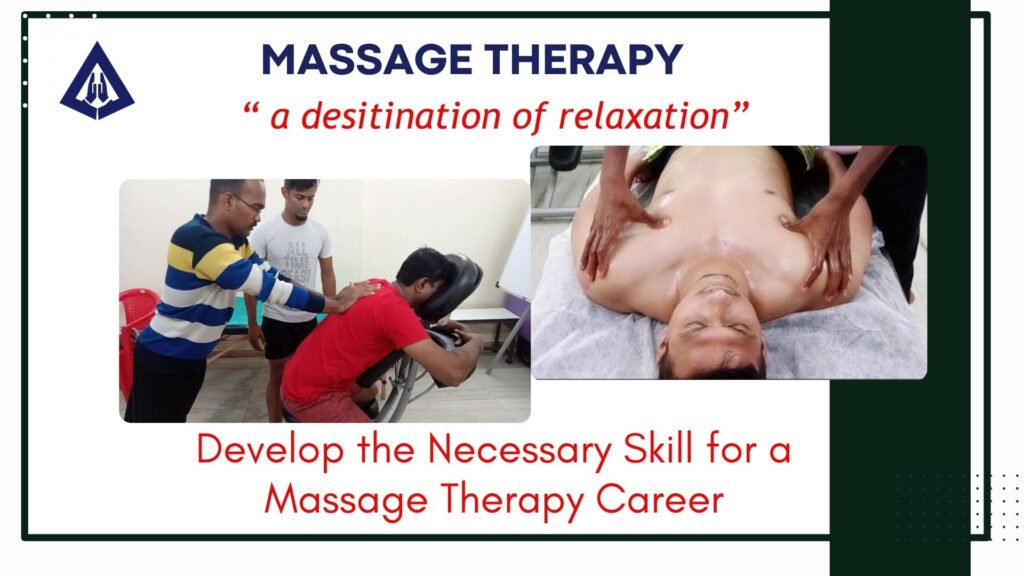
Content:
- Course Orientation: Introduction, Importance of Certification, Therapist Etiquettes, Room Interior, Medical Recalls.
- Anatomy and Physiology: Understanding of the human body, its structure, function, Strokes Name, Anatomy, and systems relevant to massage therapy. Techniques.
- Swedish Massage – Supine.
- Swedish Massage- Prone.
- Deep Tissue Massage Therapy
- Head Massage
- Foot Massage
- On Chair Back Massage- (Corporate Massage)
- Revision
- Exam.
Duration: 30 Hours* (Minimum)
Advanced Massage Therapy Course
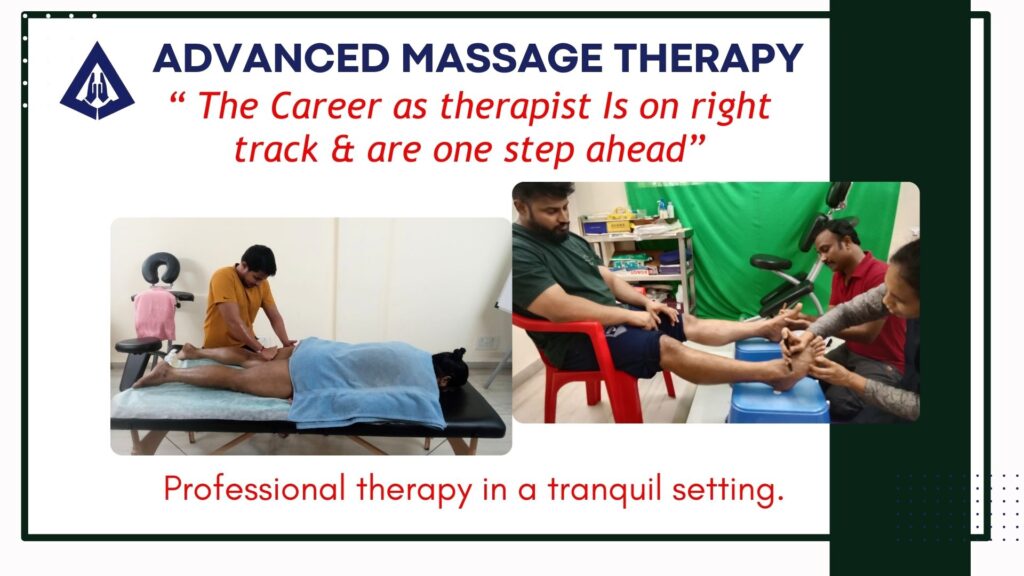
Content:
- Course Orientation: Introduction, Importance of Certification, Therapist Etiquettes, Room Interior, Medical Recalls.
- Anatomy and Physiology: Strokes Name, Techniques, Body Systems.
- Swedish Massage – Supine.
- Swedish Massage- Prone.
- Deep Tissue Massage Therapy
- Head Massage
- Foot Massage
- On Chair Back Massage- (Corporate Massage)
- Thai Massage Level -1 (Dry Massage.
- Abhyanga Ayurvedic Massage.
- Foot Reflexology.
- Dry Cupping.
- Revision
- Exam.
Duration: 45 Hours* (Minimum)
Advanced SPA Therapy Course
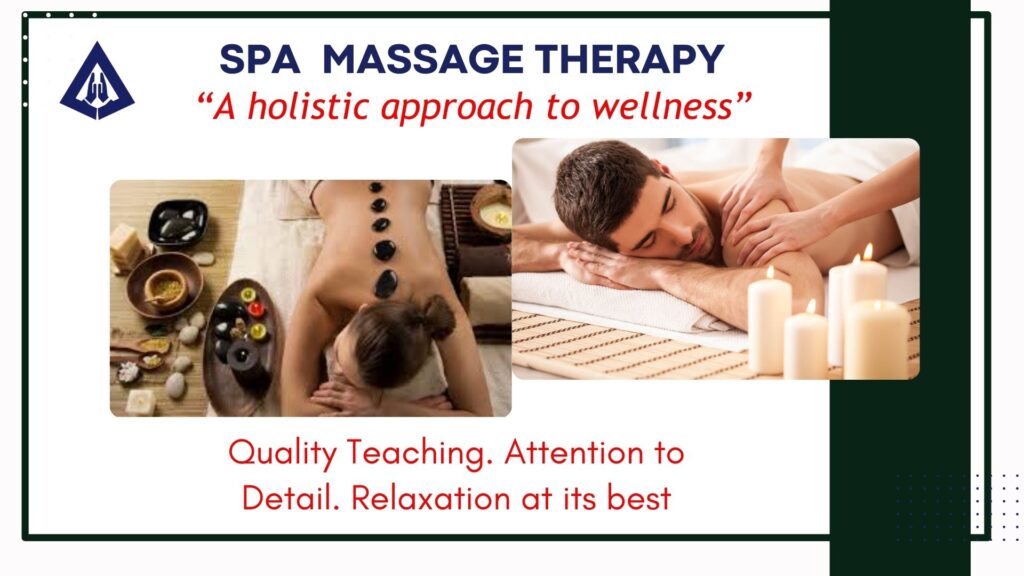
Content:
- Course Orientation: Introduction, Importance of Certification, Therapist Etiquettes, Room Interior, Medical Recalls.
- Anatomy and Physiology: Strokes Name, Techniques, Body Systems.
- Swedish Massage – Supine.
- Swedish Massage- Prone.
- Deep Tissue Massage Therapy
- SPA Head Massage
- SPA Foot Massage
- Thai Aroma Massage
- Balinese Massage
- On Chair Back Massage- (Corporate Massage)
- Thai Massage Level -1 (Dry Massage.
- Abhyanga Ayurvedic Massage.
- Hot Stone Massage Therapy
- Foot Reflexology.
- Dry Cupping.
- Revision
- Exam.
Duration: 54 Hours* (Minimum)
Sports Massage Therapy Course
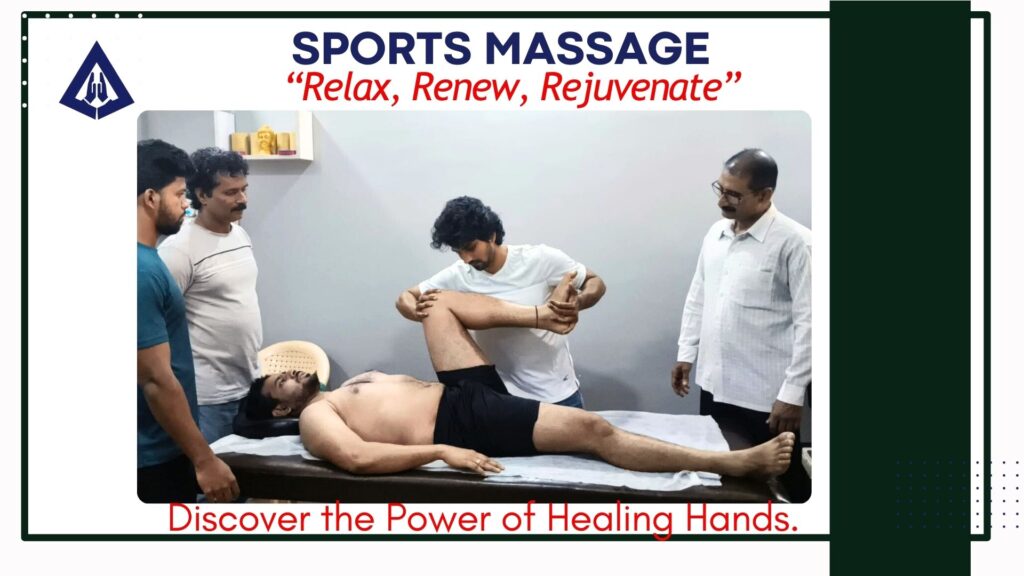
The course includes-
- Course Introduction, Importance of Certification, Therapist Etiquettes, Room Interior, Medical Recalls.
- Human Anatomy, Strokes Name, Techniques.
- Pre-Sports Massage Techniques.
- Regular Sports Massage
- Trigger Point Theory
- Handling of IASTM tools
- How to use Massage Gun
- Body Stretching
- Dry Cupping
- Exam
Duration: 31 Hours* (Minimum)
SPA Massage Course
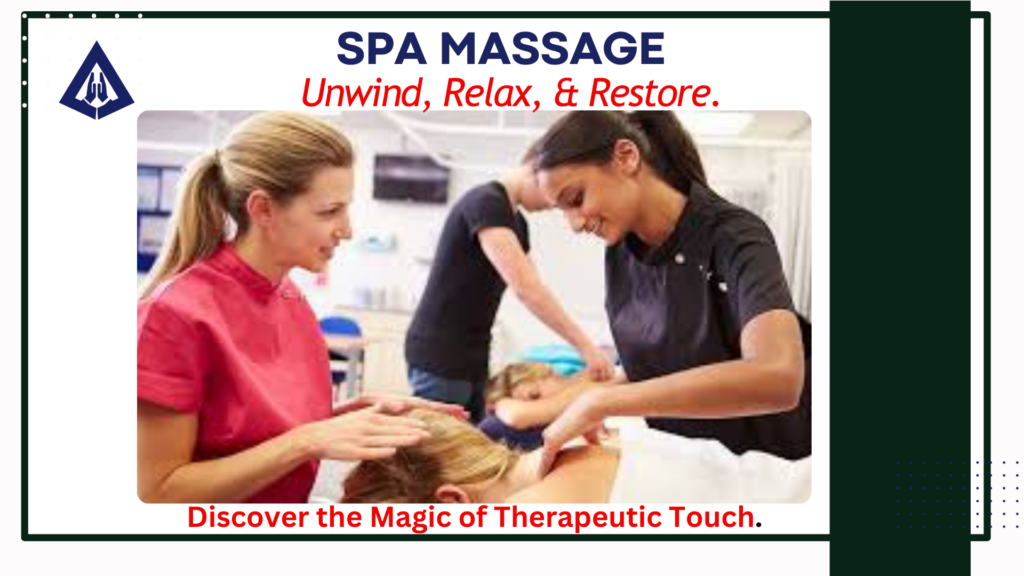
The Course Includes-
- Course Introduction, Importance of Certification, Therapist Etiquettes, Room Interior, Medical Recalls.
- Human Anatomy, Strokes Name, Techniques.
- Swedish Massage Therapy
- Balinese Massage
- Thai Aroma Massage
- Hot Stone Therapy
- Body Stretching
- Dry Cupping
- Exam
Duration: 36 Hours* (Minimum)
Infant Massage & Mom Massage
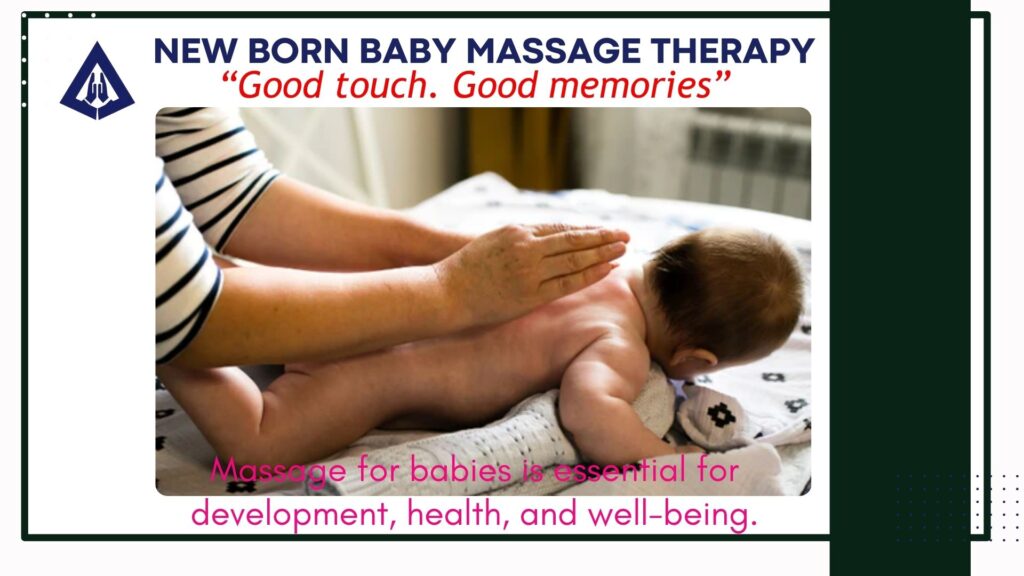
The Course Includes-
- Course Introduction, Importance of Certification, Therapist Etiquettes, Room Interior, Medical Recalls.
- Human Anatomy, Strokes Name, Techniques.
- Baby Massage Techniques & Therapy
- Full Body Streching.
- Mom Massage Techniques
- Wrap Up
- Naturpathy Tips
- Important Precautions.
Duration: 18 Hours* (Minimum)
Workshops
Paralysis Rehab Therapy
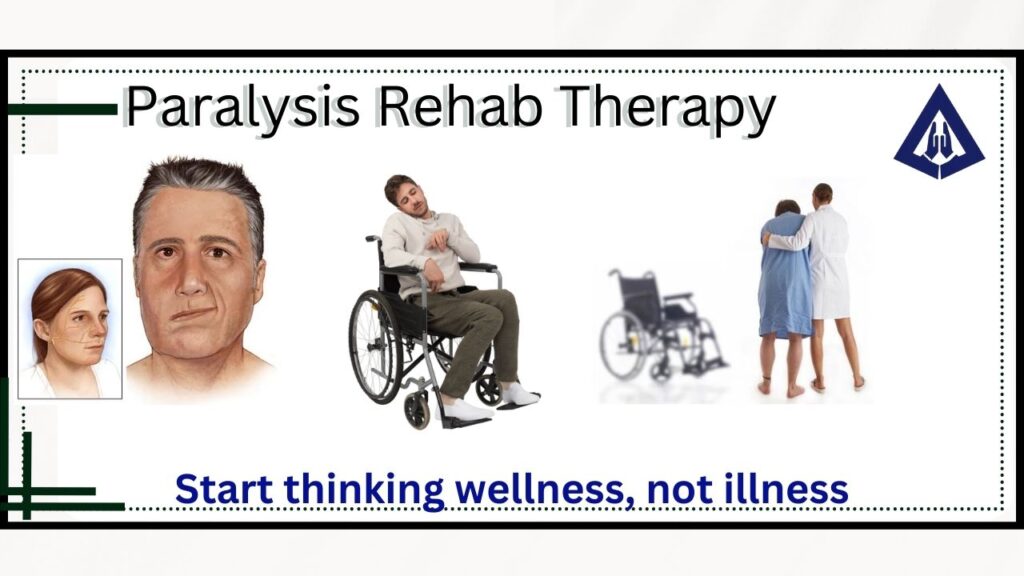
Paralysis Rehabilitation Workshop is designed to provide comprehensive support and guidance for individuals living with paralysis. Led by experienced rehabilitation specialists and healthcare professionals.
Key Topics:
Understanding the physiology of paralysis and rehabilitation principles
Developing Reflexology Techniques, Proper Massage, Personalized Exercise and Mobility Routines.
Addressing emotional and psychological aspects of paralysis
Setting realistic goals and tracking progress
Building a support network and accessing community resources.
Gua Sha Facial Massage
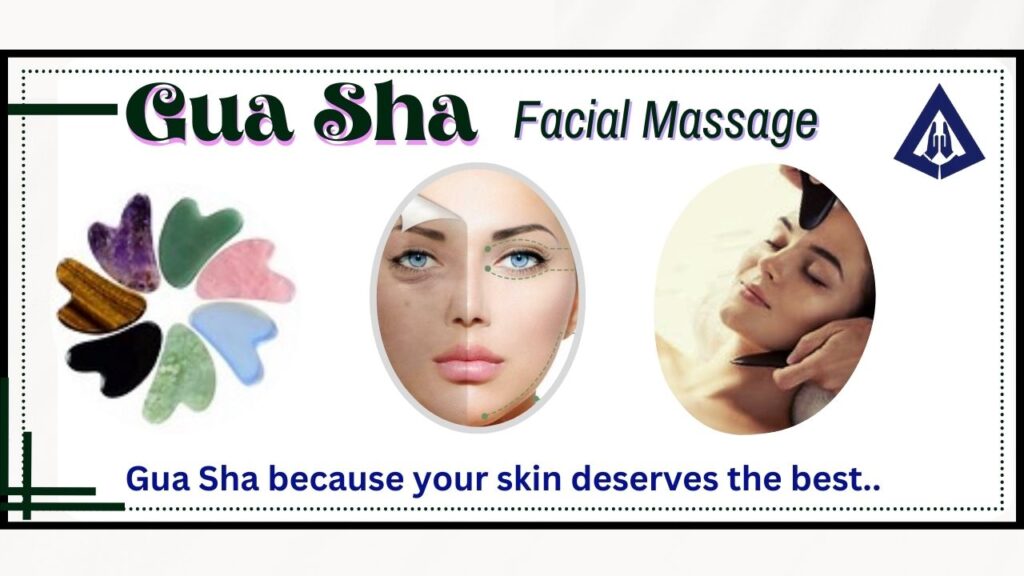
Gua Sha Facial Massage is a traditional Chinese technique that involves gently scraping the skin with a smooth-edged tool to promote circulation, lymphatic drainage, and the release of tension in the facial muscles. The term “Gua Sha” translates to “scraping sand,” reflecting the method’s historical use of scraping to remove toxins from the body.
Key Topics:
History and Origins: Understanding the historical background of Gua Sha, its traditional use in Chinese medicine, and how it has evolved into a facial massage technique.
Technique and Tools: Explaining the proper technique for performing Gua Sha facial massage, including the types of tools used (jade, rose quartz, etc.), how to hold the tool, and the direction of strokes.
Skin Types and Conditions: Discussing how Gua Sha facial massage can benefit different skin types (dry, oily, combination, sensitive) and address various skin concerns (acne, aging, dullness, inflammation).
Contraindications and Safety: Advising on contraindications for Gua Sha facial massage, such as active acne, sunburn, or broken skin, and emphasizing the importance of using gentle pressure and proper technique to avoid causing injury.
Demonstration and Practice: Providing visual demonstrations or step-by-step guides for performing Gua Sha facial massage, along with opportunities for hands-on practice to develop proficiency in the technique.
Potli Massage Therapy

Potli Massage, also known as potli massage therapy or potli massage technique, is an ancient Indian healing therapy that involves the use of heated herbal pouches (potlis) to massage the body. The term “potli” refers to a small cloth pouch filled with a blend of therapeutic herbs, spices, and other natural ingredients.
Key Topics:
Introduction to Potli Massage: Provide an overview of the history & origins of Potli massage, its cultural significance, & its evolution as a holistic healing therapy.
Selection & Preparation of Potlis: Guide participants in selecting & preparing herbal ingredients for Potli pouches, emphasizing the importance of using high-quality herbs, spices, and natural materials.
Benefits of Potli Massage: The various physical, mental, & emotional benefits of Potli massage, including muscle relaxation, pain relief, stress reduction, improved circulation, detoxification, and skin rejuvenation.
Heating Techniques: Demonstrate different heating techniques for Potli pouches, such as steaming, using hot water, and provide safety tips to prevent burns or injuries.
Massage Techniques: Teach participants a variety of massage techniques using Potli pouches, including gentle pressing, rhythmic tapping, rolling, kneading, and circular motions, targeting different areas of the body.
Specific Applications: Discuss specific applications of Potli massage for common issues such as muscle pain, joint stiffness, arthritis, stress, fatigue, insomnia, and poor circulation, and demonstrate how to adapt the technique accordingly.
Contraindications and Safety Precautions: Educate participants about contraindications for Potli massage, such as pregnancy, open wounds, burns, infections, and inflammatory skin conditions, and provide guidelines for ensuring client safety and comfort.
Practice Sessions: Provide opportunities for hands-on practice and experiential learning, allowing participants to practice Potli massage techniques under supervision, receive feedback, and refine their skills.
Self-Care Techniques: Teach participants self-care techniques using Potli pouches for relieving stress, tension, and discomfort in their own bodies, promoting self-awareness and well-being.
Points to be noted:
- Course duration will depend on the grasping capacity of student. So course duration may increase without increase in fees.
- All practical material will be provided by institute.
- Course manual will be in PDF format.
- Practical notes will be provided in hard copy.